LEAD

LEAD – Learning in difficult Times Project Duration: 2022-2024 The aim of the project called “Learning in difficult times” is to break the prejudices of educators working in the field of adult education and to draw attention to the use of tools such as skype, zoom and blue button in adult education. According to European Union criteria, an adult is anyone between the ages of 25 and 64. As the world population ages,the importance of education given to adults increases. However, adults have different needs than students in formal education.Again, the time adults spend on learning is different. Adults have different budgets for learning. Adults have different learning methods.Adults focus on individual learning rather than group learning. They act according to their own learning speed and needs. Their motivation is very high. They have experience and use this experience in new learning. Adults learn more easily than students in formal education, provided that there is sufficient time and opportunity. It is easier for adults to access learning tools and learning technology. Adults have strong economic resources and money. However, adult learners are not as practical as younger learners in using technology. In fact, they are more distant to technology and innovation than young people. For this reason, adults need to be convinced of the importance of lifelong learning and to break their prejudices about the difficulty of using technology. Education services have been disrupted in many countries due to the coronavirus process. Due to the suspension of education and quarantine practices in schools, approaches such as home learning or self-learning have come to the fore. This situation necessitated the use of educational technology and distance education tools. Adults who are not prone to technology and prefer face-to-face education have had a hard time in this process. For this reason, it becomes very important to enlighten adults about educational technology and to use technology by adult educators and people working in the field of adult education. Thanks to the use of technology, learning difficulties can be overcome. Skills and competences of adult educators to be developed during the course: general knowledge of LEAD method; ICT competences – teachers will be acquainted with useful apps and supporting save behaving of adult persons using mobile or other ICT apps; improved knowledge on supported employment and on increasing employability of adult persons Facebook | Website | Handbook for teachers & adult learners | Digital Skills handbook The project is financed by Erasmus+ KA2: 2021-2-TR01-KA210-ADU-000050028
E-safety
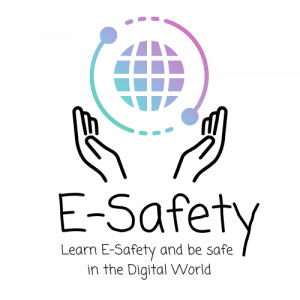
E-safety – Learn E-Safety and Be Safe on Digital World Project duration 2021-2023 With advances in science, technology is now an integral part of everyone’s life. Consequently, the effective use of digital technologies has come to the forefront of the competencies that future generations must have. However, it is possible to bring this competence to future generations if teachers are also competent. The digital transformation and high performance digital skills are among the strategic priorities in the Erasmus + 2021- 2027 program guide. Furthermore, in line with society’s changing workforce needs in the process of digital transformation, it has become a necessity for the new generation to be able to use technology consciously and effectively as individuals who produce information, not as consumers of it. At this point, studies and reports produced by national and international institutions have revealed that individuals must have certain skills such as information literacy, data literacy and ICT skills. This project’s aim is to create a safe internet environment for students by increasing digital competencies. In addition, the aim is to train better equipped educators and more conscious generations by sharing good practices in ICT technologies with project partners in European countries and transferring good practices to the schools. The skills, qualifications and competencies that teachers must have to train future generations are likewise those that have been framed by international and national institutions. Teachers’ digital competencies are important for their students’ ability to take advantage of new technologies. Objectives To equip students with the skills of problem solving, information access, information processing and presentation through the effective use of ICT tools and enable them to use these technologies effectively and safely. To raise children’s awareness and understanding of the rules needed to prevent the negative effects of online activities. To improve the quality of education by supporting digital learning environments with educational practices, objectives of the institution. To improve collaboration between the community, school, teachers and students through the use of computer tools. To create opportunities for educators to increase their professional and personal development by exchanging ideas and by acquiring new and innovative methods. To develop ICT techniques and methods through which teachers will learn about digital citizenship and digital literacy skills. To ensure the use of information technology tools in the work of school administration, to facilitate administrative work and make it more efficient. Facebook | Read Blogpost The project is financed by Erasmus+ KA2: 2021-1-ES01-KA210-SCH-000032341
Multi-I

Multi-I – Multimodal Interaction and Information Project Duration: 2022-2024 Multimodal Interaction and Information (Multi-I) is a 24-month strategic adult innovation partnership aimed at empowering trainers of adults and educators by equipping them with powerful instruments and methodologies aimed at integrating adult refugees through the creation of multimodal pedagogical literacy tools. As a critical component of lifelong learning, multimodal literacy encourages adult people to engage civically, to overcome disadvantages, and to represent viewpoints that are oppressed and lacking. Adult people need to be able to communicate effectively in an increasingly multimodal world. This requires teaching them how to comprehend and compose meaning across diverse, rich, and potentially complex, forms of multimodal text, and to do so using a range of different meaning modes. The solution is to provide the target group with multimodal literacy skills. It is a prerequisite for educators to increase their experience in this field for the acquisition of these skills. The Multi-I project has determined educators and trainers, who will play an important role in the acquisition of these skills to adults, as the target group and planned the project outputs in a way that will enable them to gain competence in the field. Objectives: Phase of research and analysis: This step will be composed of researching on effective national and international models of Creative Drama and Media Literacy and Digital Storytelling methodologies in the light of Multimodal Literacy Sessions of the national focus group with the target group and stakeholders; The Research Report ‘Challenges in multimodal literacy and effective models to ensure the integration of adult refugees’ will be the outcome of this process, providing the basis for the structuring of the training format ‘Adult work ensuring social integration of the target group’ to be tested during the Joint Staff Mobility period. During the Joint Staff, the development of the Multimodal Literacy Toolkit to ensure the integration of adult refugees and its draft will be produced. The Toolkit will be one of the Web Platform’s Open Tools, organized in a PDF format, augmented by video tutorials of the Joint Staff’s activities. To develop integration by Multimodal Literacy Web Portal, which serves as both an educational center for storing information materials and educational tools, such as the digitalized version of the Training Format in e-learning modules, the PDF version of the Toolkit and video tutorials, as well as a networking channel for trainers and members of adult organizations and NGOs to share good practice. Results: The products we will obtain at the end of the project are as follows: Training Format for Trainers of Adult, Multimodal Literacy Toolkit, and One Web Platform. The Multi-I project aims to strengthen educators and institutions actively working in adult education with innovative pedagogical products for the integration of refugees, which is an important issue at the European level. At the same time, as Multimodal literacy is a skill that every age group should acquire, we aim to encourage cooperation between sectors and different education levels in the project. Facebook | Instagram | Newsletter 1 | Read Blogpost The project is financed by Erasmus+ KA2: 2021-1-NL01-KA220-ADU-000026000
Digit & Learn
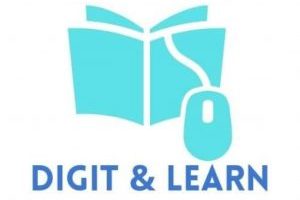
Digit & Learn – Empowering teachers for a more interactive, efficient and appealing digital learning experience Project Duration: 2021 – 2023 The KA2 “Digit & Learn” partner consortium will support teachers and professors in a digital upskilling journey that enables them to exploit the potential of digital means and technologies. They will create educational tools that complement their teaching thanks to innovative approaches such as virtual reality environments (VRE) and game-based learning (GBL). Project outcomes Promotion of the use of digital and virtual means in school education. Adoption of project results by different educational entities that will integrate them in the curricular activities. Consolidation of a cooperation framework allowing partner organisations to be active on the topic exchanging information and proposing follow-up initiatives, also with the involvement of interested stakeholders. Project Results Blended learning-based Training Format targeted at teachers aimed at providing them with digital and new technologies content creation competencies. Digital & Virtual Toolbox issued from the co-creation process between partners and trained teachers containing the new developed digital tools to be employed during lessons for a selected sample of school subjects. Assessment system aimed at measuring the impact of the Digital Toolbox on student learning achievements. Website | Assessment System | Training Format (English) | Training Format (Finnish) | Facebook | Newsletter 1 | Newsletter 2 | Read Blogpost | Read Blogpost 2 | Read Blogpost 3 | Multiplier Event Invite | Multiplier Event Flyer The project is financed by Erasmus+ KA2: 2021-1-LT01-KA220-SCH-000027737
Empowering Disadvantaged Women
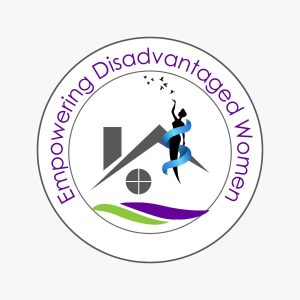
Empowering Disadvantaged Women via Distance Education for a Sustainable Development Project Project Duration: 2022 – 2024 In the global agenda, women are regarded as the key driver for economic empowerment and employment. Gender equality (GE) is at the centre of EU values and is supported within the legal and political framework. Recent research and statistics show that the integration of women, with fewer opportunities, in the Covid-19 process has slowed down in most European countries. This fact needs to be addressed and gives an opportunity to rethink strategy, be successful and find new ways. The project aims to provide special learning opportunities to low-skilled adults and women, to encourage women to education by removing the space and time limits, and by increasing women’s economic empowerment/basic skills and competencies through distance education. In particular, our project focuses on housewives, immigrant or refugee women with multiple disabilities who want to be educated but can’t. They are responsible for housework, sick and elderly care and at the same time out of the education system and cannot work. Through this innovative method, and continuously renewed open access online courses, we will increase the employability of the target group. This will provide important results for individuals, families, communities, and society. Objectives To create an e-learning platform that can be integrated into the systems of institutions, that will reduce women’s poverty and are based on lifelong learning. To certify the compulsory domestic work done by women, to turn this disadvantaged situation into an advantage for them. To contribute to increasing the employment of disadvantaged groups through education. To provide easy access to education services with distance education modules for women who cannot attend face-to-face courses and create certified programs. To empower women in careers, entrepreneurship, digital skills, and financial literacy through education and ensure their participation in social and economic life. To create a strong social education network for women. To encourage women to develop themselves by providing professional and personal development trainings. Facebook | Website | Press Release | Blogpost Newsletter 1 | Newsletter 2 The project is financed by Erasmus+ KA2: 2021-1-NO01-KA220-ADU-000033467
Digital Health Literacy
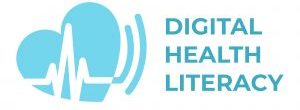
Digital Health Literacy (Digital Health Literacy to Increase the Resilience of the Disadvantaged Group) Project Duration: 2021 – 2023 This project aims to increase digital health literacy to increase the resilience of the disadvantaged group (elderly, disabled, stay-at-home mothers) who cannot get out easily in accessing digital skills applied in the health sector. This project develops tools for letting users better manage their health and make their health literate. Digital health literacy ‘is the ability to seek, find, understand, and appraise health information from electronic sources and apply the knowledge gained to preventing, addressing or solving a health problem’. Digital communication technologies are playing an important role in the health communication strategies of governments and public health authorities during the COVID-19 pandemic. The internet and social media have become important sources of health-related information on COVID-19 and on protective behaviours. In addition, the COVID-19 infodemic is spreading faster than the coronavirus itself, which interferes with governmental health-related communication efforts. This jeopardizes national public health containment strategies. Therefore, digital health literacy is a key competence to navigate web-based COVID-19–related information and service environments. The overall objectives are to increase digital health literacy to increase the resilience of the disadvantaged group and to get to know the digital health tools used across Europe. Facebook | Instagram | Newsletter The project is financed by Erasmus+ KA2: 2021-1-NL01-KA210-ADU-000034096
Use your time creatively

Project Duration: 2021 – 2022 The ‘Use your time creatively!’ project is based purely on the exchange of good practices, a cultural initiative with an educational dimension. Each participating organisation developed an innovative learning method for adult learners that will be transferred to the rest of partners. The project aims to extend the competences of educators in the field of new methodologies for adult learners, as well as preparing an innovative set of educational materials dedicated to a group of young parents. The participating organisations from Poland, Finland, Portugal, Greece, Georgia and Egypt, will gain a wider, more attractive educational offer that will be better suited to the needs and interests of the target group. Each organisation specialises in different field which ensures a wide exchange of good practices. There will be free access to the materials created, which will extend the exchange of good practices at national and international level. The project will strengthen competences of educators and introduce new, innovative solutions for adult learners in a long-term perspective. Facebook The project is financed by Erasmus+ KA2: 2020-1-PL01-KA227-ADU-095421
AR4EFL
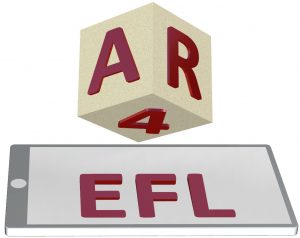
AR4EFL: Transforming Primary School Students’ English as a Foreign Language Learning (EFL) with Augmented Reality (AR) Project Duration: 2021 – 2023 For teachers, the COVID-19 Pandemic has become a great challenge for which there is no preconfigured playbook that can guide appropriate responses. The crisis has, among other things, demonstrated the complexity of keeping young primary school students attentive to the online explanations of teachers. The learning process that we typically find in the classroom, either that is based on traditional translation-based methods or more interactive everyday dialogues and material, still cannot be compared to the real experience that the students can have nowadays with the use of technology. Augmented Reality (AR) can be defined as “a real-time direct or indirect view of a physical real-world environment that has been enhanced/augmented by adding virtual computer generated information to it”. With this project we aim to train school teachers to use AR when teaching English as a foreign language to young students, who are also the final beneficiaries of the project. Objectives To create a realistic learning environment for learners of a second language so as to motivate them to learn. Design, test and publish an innovative educational package based on AR technology for primary school teachers that will guide and support their English (or any other) as second language teaching. To provide quality training to primary school teachers on how to utilise the innovative educational package in traditional or virtual/online classroom. Website | Facebook | Training Brochure | Training Flyer | Newsletter 1 | Newsletter 2 | Newsletter 3 | Newsletter 4 | Press Release 1 | Press Release 2 | Read Blogpost Project Brochure (English | Finnish) Flyer (English | Finnish) Multiplier Event Invitation (English | Finnish) The project is financed by Erasmus+ KA2: 2020-1-UK01-KA226-SCH-094466
Integrating Digital Learning
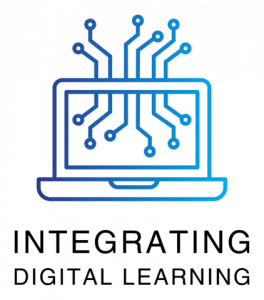
Integrating Digital Learning (integrating digital learning competences into the education curriculum) Project Duration: 2020-2022 Digital competence includes the safe and critical use of Information Society Technology for business, entertainment and communication. This is supported by basic skills. Aims of the Project: To raise 21st century competencies To increase the digital information and data literacy competencies To improve digital communication and collaboration competencies To increase the competencies of digital content production To upgrade digital security competencies To increase digital problem solving competencies Activities for the Purpose of the Project: With this 21st Century Competencies activity, in this competence field, the participants will be able to understand the place of digital skills in the 21st century. Analysis, comparison and critical evaluation of the information and digital literacy activities and the reliability of information and digital content sources in this competence field will be made. With the Digital Communication and Cooperation activity, data, resources and information in this competence field will be used together with digital tools and technology in a collaborative process. With the activity of Digital Content Production, students will be able to organize digital content in different formats and express themselves in digital ways. With the Digital Security activity, practices will be carried out to prevent students from protecting the privacy of personal data in digital environments in this competence field. With this Digital Problem Solving activity, applications will be made for the participants in the following subjects in this competence field. Methodology: Within the scope of the two-year project activities, three international meetings and six LTT activities will be held. All partners will send two participants to international project activities. All partners will send three participants to the second, third, fourth and sixth project activities. An eTwinning project page will be actively used for the implementation and dissemination stages of LTT activities. With the Digital Practice Guide, it will enable to analyze problem areas in a timely manner, to determine the strategy to meet the need, to make arrangements in learning environments to achieve the goal and to determine the rate of achievement of the goals. The Digital Application Guide will be updated as needed and will achieve a long-term, sustainable cycle. Facebook The project is financed by Erasmus+ KA2: 2020-1-CZ01-KA201-078315
AWARDS
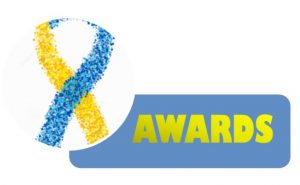
AWARDS (autonomy and well-aging reinforcement for the adult people with down syndrome) Project Duration: 2020-2022 The specific objective of the project will be achieved by reaching two different project results with a series of activities to be implemented and outputs from them. These results and the activities to reach these results are planned as the following. RESULT A- Improving the competence of families and professionals with the adults with DS to gain their skills of autonomy in order to reinforce active and well-aging of the adults with DS. Activity A1- Creating “Skills and Interests Test for Adults With DS” for accurate professional and social orientation of the adults with DS. Activity A2- Developing “Multimedia Training Tool for Healthy Nutrition” for the adults with DS. Activity A3- Developing “Multimedia Training Tool for Physical Exercises and Sports Training” for the adults with DS. Activity A4- Creating “Vocational Education, Employment and Social Participation Training Module” for the families and professionals of the adults with DS. RESULT B- Improving the competences of families and professionals of the adults with Down Syndrome to increase their life quality in order to reinforce active and well-aging of the adults with DS. Activity B1- Creating “Sexual Health and Sexual Education Module for Adults With DS” for the families and professionals of the people with DS . Activity B2- Creating “Health Protection Training Module for Adults With DS” for the families and professionals of the people with DS. Activity B3- Creating an e-learning platform to reinforce the education materials and skills and interest tests. Activity B4- Organizing adult trainers’ training activities of AWARDS project training modules. Activity B5- Pilot training activities of AWARDS project training modules in partner countries. Activity B6- Organizing “Active and Well-Aging in People With Down Syndrome Conference and Concert Program”. The competences of the families and professionals of the adults with DS will be achieved in order to equip the adults with Down Syndrome with knowledge and skills in professional, technical, social or cultural fields, to bring them to life and to support them to become productive individuals. With the project products and results obtained within the scope of the project, the active and well-aging will be reinforced by increasing the social inclusion of the adults with Down syndrome. Website | Facebook | IO1 report 1 | IO1 report 2 | Newsletter The project is financed by Erasmus+ KA2: 2020-1-TR01-KA204-094615
